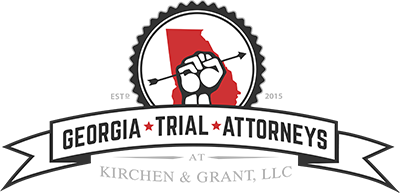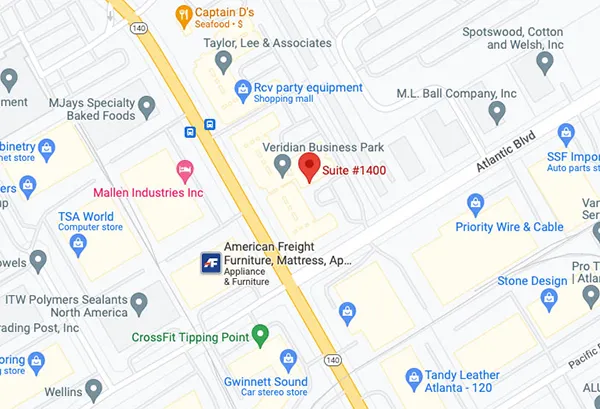Help your clients ace their deposition:
Download Our Go-To Guide For Effective Deposition Preparation
Home > Resources > Personal Injury Complaints > Deposition Preparation
The Ultimate One-Page Guide to Preparing for a Personal Injury Deposition
In a personal injury lawsuit, a plaintiff's deposition stands as a significant event. This legal procedure, involving sworn, under oath answers to questions, typically takes place during a lawsuit's discovery phase. Unfortunately, many personal injury clients are left under-prepared, often merely told to "tell the truth." While truthfulness is paramount, effective deposition preparation requires much more, especially considering it will affect the value of their eventual settlement or verdict.
The nature of the testimony given, and how it's presented, will influence the outcome of a client’s case. It is incredibly important to ensure that each client is adequately prepared for their deposition. A well-prepared client strengthens their case and its value.
To aid in this effort, we offer our One-Page Deposition Preparation Guide, specifically tailored for attorneys handling personal injury cases. This guide is beneficial for both attorneys and their clients. For the attorney, it serves as a blueprint during the actual prep session, while for the client, it acts as a visual aid in the days leading up to their deposition.
Our guide provides a thorough walkthrough of deposition preparation. It covers all bases, from defining a deposition and its purpose to sharing proven tips and best practices. We also tackle the unique challenges presented by virtual depositions and offer guidance on technology use. Furthermore, the guide includes potential questions your clients may encounter during their deposition.
For the most effective use of this guide, we recommend that you:
- Start witness preparation 5-7 days before their testimony is to be given. Memories can fade, and allowing a few days of repeated study can help the witness recall details more accurately.
- Complete the table at the end of the guide with key details the witness will likely be asked about. Preparation is a collective effort, and demonstrating your commitment to the case and successful testimony can boost the witness's confidence.
- Give the witness a copy of the one-page guide and relevant records (e.g., police report, medical narratives or chronologies, pain and suffering narratives, etc.). Avoid overwhelming the witness with too much information—keep it to a maximum of 10 pages.
- Conduct a final preparation session the day before to ensure the witness is well-prepared and address any lingering questions. It's also useful to test their understanding with a few tricky questions to gauge if they've effectively reviewed their "homework."
Access our free Deposition Preparation Guide and enhance your deposition preparation sessions. Simply click "Download Here," and you'll have a useful tool to boost your client preparation process.
PREVIEW:
Deposition Preparation Guide Prep Date: Depo Date: Depo Address (URL/physical):
1. Litigation Process Overview:
- Phases: Suit Filed à Suit Served à Answer(s) Filed à Discovery (written) à Discovery (depositions)
- Purpose: To “pin down” your testimony and assess your credibility, as it would be presented to a jury.
2. Depositions Explained:
- What: What is a deposition?
- Who: Parties & attorneys involved
- Format: Virtual/in-person
- Discussion Topics: Almost everything is permissible. Answer all questions unless instructed otherwise.
3. Ground Rules:
- Provide Verbal Answers Only: no nods or gestures.
- One Person Speaks At a Time: Do not interrupt.
- Wait for the Entire Question to be Asked: Don’t answer prematurely.
- Understanding Assumed: If you answer a question, it is presumed you understood it.
- Breaks: They are allowed, but cannot be taken while a question is pending.
4. Important Tips & Reminders:
- Appearance: Dress in conservative business casual attire
- Maintain Your Composure: Stay calm and professional. Your demeanor will affect your case value.
- Avoid Guessing or Speculating:
- Your answers are considered precise unless you say otherwise.
- It is acceptable to Estimate or say “I don't recall” or “I don’t remember.”
- Do Not Volunteer Extra Information: stick to “Yes”, “No” or...
Seeking More Resources or Expert Advice?
We invite you to explore our extensive collection of free resources, tailored to assist you in proficient and effective personal injury litigation. Our team is firmly committed to the principle that a rising tide raises all ships.
If you require additional resources, have questions, or need assistance with a specific case, don't hesitate to contact our experienced team of personal injury attorneys. Let’s work together to raise the bar in personal injury litigation, ensuring every case gets the attention and compensation it deserves.
By joining forces, we can enhance the practice of personal injury litigation, ensuring each case receives the detailed attention and rigorous scrutiny it deserves.


